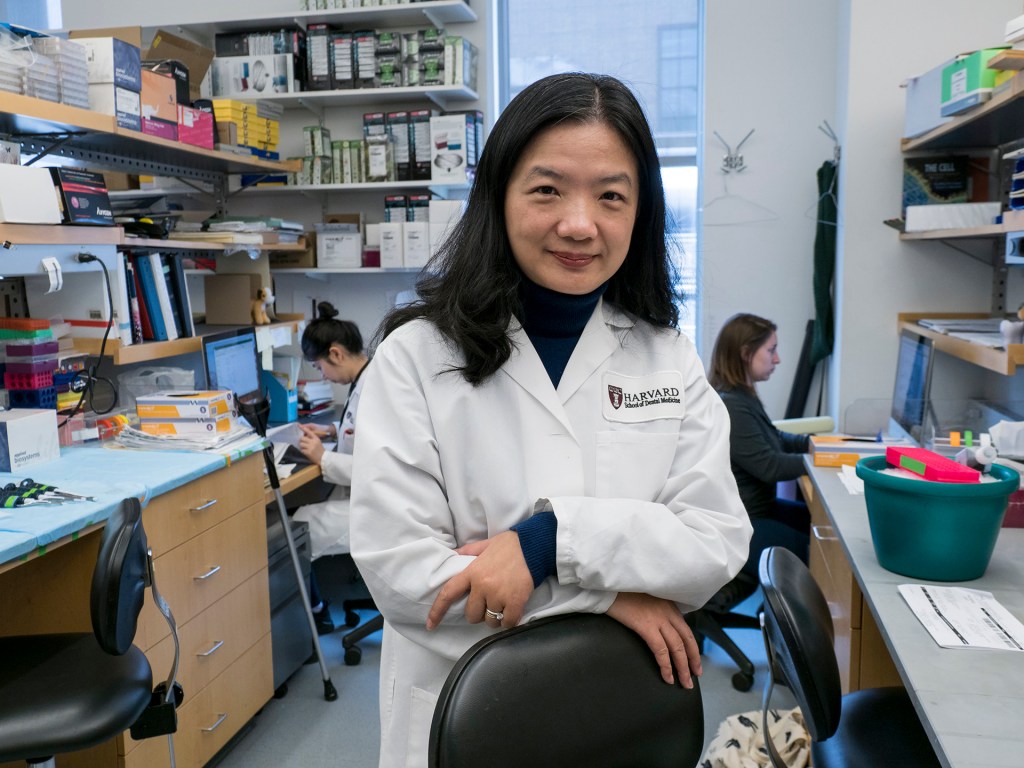
Health
A setback to research that offered hope for fibrous dysplasia patients
Halt to federal funding disrupts study of rare skeletal disease
In 2023, the Harvard School of Dental Medicine was awarded a U.S. Department of Defense grant to fund a four-year study of fibrous dysplasia (FD), a severe skeletal disease in which benign tumors cause bone deformities, fractures, and pain. The award aimed to investigate the cellular and molecular underpinnings of the disease, which affects an estimated 1 in 15,000 to 30,000 people and currently has no cure. The research had promise not only for treating FD, but also for finding treatments for conditions affecting military personnel, including blast-induced heterotopic ossification and chronic bone pain.
At the time, the funding was applauded by patients and patient advocacy groups such as FD/MAS Alliance, a nonprofit dedicated to finding evidence-based treatments for Fibrous Dysplasia and McCune-Albright syndrome.
“This funding was more than just a financial award—it was a crucial investment in understanding and eventually treating a devastating disease.”
Adrienne McBride
“This funding was more than just a financial award—it was a crucial investment in understanding and eventually treating a devastating disease,” said Adrienne McBride, executive director of the Alliance. “Advancing research in FD/MAS benefits those living with this rare disease and holds great potential for broader medical applications.”
The mechanisms investigated in FD research have the potential to yield insights relevant for many other diseases causing bone fragility, pain, and fractures. With federal research funding to Harvard now frozen, these insights may never be realized.
“FD patients and their families had been closely following research advances, hoping for novel, effective interventions. The termination of leading-edge projects like this erodes this hope and sends a discouraging signal to those living with an already-overlooked disease,” said Yingzi Yang, professor of Developmental Biology at HSDM, and principal investigator on the grant.

Yingzi Yang.
Photo by Steve Gilbert
Yang and her partners at Massachusetts General Hospital (MGH) had been making progress in the few years since the funding was awarded. While some work continues at MGH, the research based in the Yang Lab at HSDM, which was critical to providing a greater understanding of the disease mutation, has stopped.
“We had made substantial progress in terms of identifying potential treatment targets of this devastating disease based on getting a better understanding of the molecular mechanisms,” said Yang. “Cutting off our study disrupts the holistic understanding of the FD disease and reduces the research rigor and impacts.”
“Cutting off our study disrupts the holistic understanding of the FD disease and reduces the research rigor and impacts.”
Yingzi Yang
“The cancellation of this grant is a significant setback for FD/MAS research and for patients, including military personnel, who rely on scientific progress for hope and support,” said McBride.
FD/MAS can affect every bone in the body, but the largest subpopulation of those with the disease are affected by FD lesions in their craniofacial bones, leading to severe facial deformities.
HSDM alumnus Christopher H. Fox, DMD87, DMSc91, who leads the American Association for Dental, Oral, and Craniofacial Research (AADOCR), also expressed deep concerns over the implications.
“This funding cut of such promising research is a tragedy for the FD/MAS community and indeed for our country. Through our advocacy efforts, AADOCR is doing everything we can to reverse these ill-advised decisions,” said Fox.
